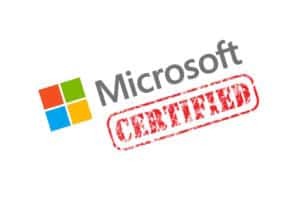In the world of lab coats and test tubes, having the right credentials is more than just alphabet soup after your name—it’s your golden ticket. Each certificate you earn is like adding a superhero cape to your professional wardrobe, making you stand out in the bustling lab tech universe.
In this post, we’re unlocking the secret formula to how lab technician certifications can boost your employability. You’re about to discover how these accreditations can act as a career catalyst, propelling you from lab bench to career zenith.
Quick Takeaways:
- Certifications boost employability by validating skills and dedication, making you a standout candidate in the competitive lab tech job market.
- Acquiring recognized certifications, such as those from AMT, ASCP, and the legacy of NCA, unlocks better job opportunities and higher salaries.
- Continuous learning and maintaining your certification through CEUs is crucial for staying current and advancing in your career.
Why Should You Care About Lab Technician Certifications?
In the highly competitive world of laboratory work, standing out from the crowd is no small feat. Lab technician certifications are more than just fancy certificates to hang on your wall; they are your ticket to a flourishing career path. Employers aren’t just looking for someone who can do the job; they’re on the hunt for individuals who have gone the extra mile to prove their competence and dedication to their craft.
Certifications act as a badge of honor, showcasing your commitment to continuous learning and quality work. They validate your skills and knowledge, ensuring that you’re up-to-date with the latest industry standards and practices. This not only makes you a more attractive candidate to prospective employers but can also open the door to better job opportunities, higher pay, and the chance for career advancement. In a nutshell, if you’re serious about carving out a successful career as a lab technician, getting certified should be at the top of your to-do list.
What Certifications Are Out There for Lab Technicians?
When you dive into the world of certifications, you’ll find a treasure trove of opportunities to enhance your credentials. Here’s a quick look at the most recognized and sought-after certifications for lab technicians:
American Medical Technologists (AMT): Recognized globally, AMT certification validates your skills in various laboratory practices, opening doors to diverse roles within the medical and research fields.
Board of Certification for the American Society for Clinical Pathology (ASCP): This prestigious certification is a gold standard for laboratory professionals. It covers a broad spectrum of laboratory techniques and is highly revered in the industry.
National Credentialing Agency for Laboratory Personnel (NCA): While it has now merged with the ASCP Board of Certification, the NCA’s legacy in certifying clinical laboratory professionals continues. It laid down strict criteria for competence in the laboratory sciences.
Each of these certifications covers different aspects of laboratory work, giving you the chance to specialize or broaden your expertise depending on your career goals. Remember, while acquiring a certification can be challenging and requires dedication, the rewards in terms of employability and career progression are well worth the effort.
How Do These Certifications Impact Your Employability?
It’s no secret that employers value certified professionals. But let’s dive into exactly how these certifications can turbocharge your employability. Real-life examples and statistics paint a clear picture:
Employers often use certifications as a screening tool during the hiring process. A study by the American Society for Clinical Pathology (ASCP) in 2019 found that laboratory professionals with ASCP certification were more likely to be hired than their non-certified counterparts. This is because certifications demonstrate a standardized level of knowledge and skills, reassuring employers of your ability to perform at a high level from day one.
Moreover, certified lab technicians often have the upper hand in salary negotiations. According to the Bureau of Labor Statistics, certified professionals in healthcare and clinical laboratories tend to earn significantly more than their non-certified peers. This financial advantage underscores the tangible benefits of certification.
But perhaps the most unique and less talked about perk is the competitive edge it gives you in the job market. In an employment landscape where standing out is key, having a certification can be the difference between getting your dream job and missing out. It signals to employers that you’re a lifelong learner, committed to keeping your skills sharp and staying abreast of the latest advancements in your field.
Certifications also foster a network of professionals, setting you up for invaluable connections that can lead to job opportunities and personal growth. It’s not just about having the certificate; it’s about what it represents – your dedication, expertise, and commitment to your profession.
In essence, the impact of lab technician certifications on employability is profound. Not only do they make you a more attractive candidate to prospective employers, but they also offer a pathway to higher wages, career advancement, and a professional network that can support your career for years to come. Whether you’re just starting out or looking to take your career to the next level, investing in a certification could be the key to unlocking your full potential.
Preparing for Certification: What Should You Know?
Embarking on a journey to become a certified lab technician is akin to prepping for a marathon; it’s rigorous, demanding, yet ultimately rewarding. Now, let’s dive into how you can gear up for this endeavor with flying colors.
First off, understand the prerequisites for your certification exams. Different certifications have various requirements ranging from educational qualifications, hands-on laboratory experience, to specific coursework. Be sure to check the accrediting body’s website for detailed information. For instance, the American Society for Clinical Pathology (ASCP) and the National Credentialing Agency for Laboratory Personnel (NCA) are treasure troves of essential guidelines and prerequisites.
Next, let’s tackle study tips. Everyone has their unique learning style, but here are universally helpful strategies: – Create a study plan: Break down the material into manageable chunks, and set a timetable. It’s like eating a whale one bite at a time; you’ll get there eventually. – Leverage online resources: Platforms such as LabCE and Khan Academy offer specialized courses and materials that cater specifically to lab technicians. – Join a study group: Sometimes, two heads (or more) are indeed better than one. Engaging with peers can help you gain new insights and deepen your understanding. – Practice tests: These are golden. They not only familiarize you with the exam format but also highlight areas where you need improvement. Websites like Quizlet offer a plethora of practice questions.
Here’s a nugget of wisdom you won’t find just anywhere: Engage in hands-on practice wherever possible. Whether it’s through internships, part-time work, or volunteering in labs, real-world experience is invaluable. It not only enriches your understanding but also makes your study sessions more relatable and grounded in practicality.
Maintaining Your Certification: Why It Matters
Crossing the certification finish line is a monumental achievement. However, the journey doesn’t end there. To stay at the top of your game, ongoing education is paramount. Here’s why and how:
Why Continuous Learning is Crucial:
– Stay Current: The medical field is ever-evolving. From new diseases to cutting-edge technologies, continuous learning keeps you updated and effective in your role.
– Professional Growth: It paves the path for advanced certifications and specializations, opening doors to higher positions and better salaries.
– Peer Recognition: Being up-to-date signifies dedication to your profession, earning you respect among colleagues and in the broader medical community.
Maintaining Your Credential
– Attend workshops and seminars: Many of these are offered by professional bodies and are geared specifically towards laboratory professionals.
– Online courses: Platforms like Coursera and edX offer courses that can contribute to your CEUs.
– Participate in professional activities: Engaging in research, authoring papers, or presenting at conferences not only contributes to your CEUs but also enhances your professional standing.
An often-overlooked strategy for staying engaged with your profession is mentorship. Becoming a mentor to aspiring lab technicians or seeking out a mentor for yourself can provide fresh perspectives and keep the passion for your work alive. It’s a symbiotic relationship that enriches both parties and fosters a vibrant, supportive community.
In wrapping up, the journey of a lab technician, from certification to maintaining and advancing in the field, is a marathon filled with continuous learning and growth opportunities. By staying informed, engaged, and always ready to learn, you secure not only your professional standing but also contribute to the betterment of healthcare.






